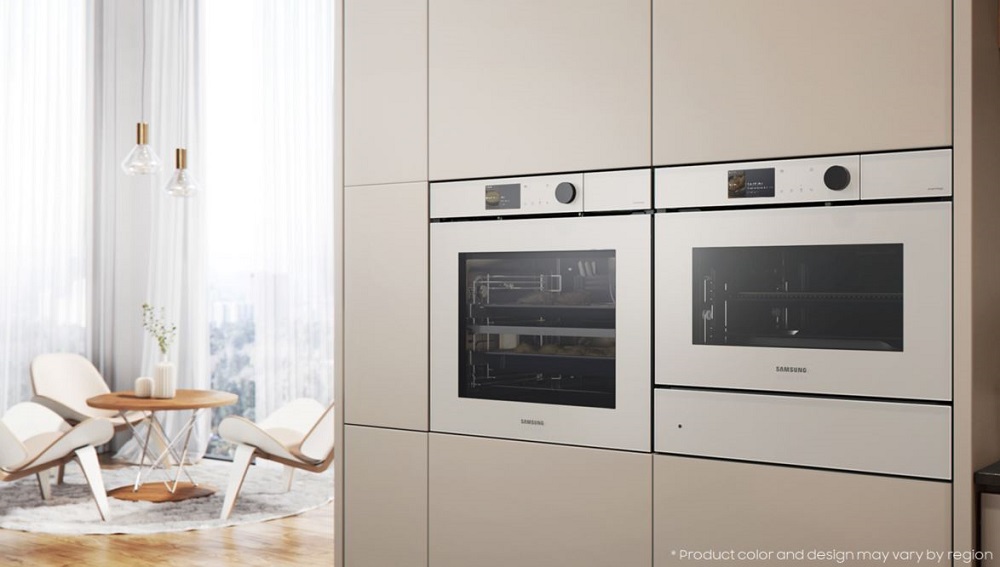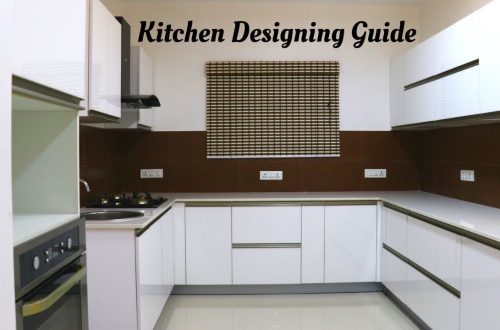Choosing the right kitchen appliances can be a daunting task. With so many brands and models available, it’s hard to know where to start. Samsung has become a major player in the appliance market, offering a wide range of products from refrigerators to ovens. But the big question remains: are Samsung kitchen appliances any good? This article will delve into the pros and cons, offering insights from a professional’s perspective to help you make an informed decision.
Samsung’s Key Strengths in Kitchen Appliances
Samsung appliances are known for several key features that appeal to modern homeowners. Let’s explore some of their strengths:
- Innovative Technology: Samsung consistently integrates cutting-edge technology into its appliances, such as smart features, touchscreens, and advanced cooling systems.
- Sleek Design: Their appliances often boast a modern and stylish aesthetic, making them a visually appealing addition to any kitchen.
- Energy Efficiency: Many Samsung models are Energy Star certified, helping you save on utility bills and reduce your environmental impact.
Potential Drawbacks to Consider
While Samsung appliances offer many advantages, it’s important to be aware of potential drawbacks:
- Repair Costs: Due to their advanced technology, repairs can sometimes be more expensive than for simpler appliances.
- Complexity: The abundance of features can be overwhelming for some users, and the learning curve may be steeper.
- Reliability Concerns: While generally reliable, some users have reported issues with specific models or components. It’s always a good idea to read reviews and check consumer reports.
Specific Appliance Categories: A Closer Look
Refrigerators
Samsung refrigerators are known for their innovative features like the Family Hub touchscreen, Twin Cooling Plus system, and flexible storage options. They often come with a higher price tag, but the advanced technology and sleek design can be worth the investment for some.
Ovens and Ranges
Samsung ovens and ranges offer features like convection cooking, steam cleaning, and smart connectivity. They are available in a variety of styles and sizes to suit different kitchen layouts. However, some users have reported issues with temperature accuracy, so it’s important to research specific models.
Dishwashers
Samsung dishwashers are generally quiet and efficient, with features like StormWash and Zone Booster for tackling tough stains. They often have adjustable racks and multiple wash cycles to accommodate different types of dishes. Consider the noise level (measured in decibels) if you have an open-concept kitchen.
FAQ: Addressing Common Concerns
So, are Samsung kitchen appliances any good? The answer is nuanced. They offer a compelling combination of innovation, design, and energy efficiency. However, potential drawbacks like repair costs and complexity should be considered. Ultimately, the best way to determine if Samsung appliances are right for you is to research specific models, read reviews, and compare them to other brands based on your individual needs and budget. Consider your lifestyle, cooking habits, and budget to make the most informed decision.
Choosing the right kitchen appliances can be a daunting task. With so many brands and models available, it’s hard to know where to start. Samsung has become a major player in the appliance market, offering a wide range of products from refrigerators to ovens. But the big question remains: are Samsung kitchen appliances any good? This article will delve into the pros and cons, offering insights from a professional’s perspective to help you make an informed decision.
Samsung appliances are known for several key features that appeal to modern homeowners. Let’s explore some of their strengths:
- Innovative Technology: Samsung consistently integrates cutting-edge technology into its appliances, such as smart features, touchscreens, and advanced cooling systems.
- Sleek Design: Their appliances often boast a modern and stylish aesthetic, making them a visually appealing addition to any kitchen.
- Energy Efficiency: Many Samsung models are Energy Star certified, helping you save on utility bills and reduce your environmental impact.
While Samsung appliances offer many advantages, it’s important to be aware of potential drawbacks:
- Repair Costs: Due to their advanced technology, repairs can sometimes be more expensive than for simpler appliances.
- Complexity: The abundance of features can be overwhelming for some users, and the learning curve may be steeper.
- Reliability Concerns: While generally reliable, some users have reported issues with specific models or components. It’s always a good idea to read reviews and check consumer reports.
Samsung refrigerators are known for their innovative features like the Family Hub touchscreen, Twin Cooling Plus system, and flexible storage options. They often come with a higher price tag, but the advanced technology and sleek design can be worth the investment for some.
Samsung ovens and ranges offer features like convection cooking, steam cleaning, and smart connectivity. They are available in a variety of styles and sizes to suit different kitchen layouts. However, some users have reported issues with temperature accuracy, so it’s important to research specific models.
Samsung dishwashers are generally quiet and efficient, with features like StormWash and Zone Booster for tackling tough stains. They often have adjustable racks and multiple wash cycles to accommodate different types of dishes. Consider the noise level (measured in decibels) if you have an open-concept kitchen.
So, are Samsung kitchen appliances any good? The answer is nuanced. They offer a compelling combination of innovation, design, and energy efficiency. However, potential drawbacks like repair costs and complexity should be considered. Ultimately, the best way to determine if Samsung appliances are right for you is to research specific models, read reviews, and compare them to other brands based on your individual needs and budget. Consider your lifestyle, cooking habits, and budget to make the most informed decision.
Comparative Analysis: Samsung vs. Leading Competitors
To provide a more comprehensive evaluation, it is imperative to juxtapose Samsung appliances with those of its primary competitors. Brands such as Bosch, LG, and GE offer comparable product lines, each with its own distinct advantages and disadvantages. A rigorous comparative analysis necessitates an examination of several key performance indicators (KPIs), including but not limited to:
- Durability and Longevity: Assessing the expected lifespan of appliances based on historical data and consumer feedback.
- Performance Metrics: Evaluating cooking performance (e.g., temperature consistency in ovens), cooling efficiency (e.g., temperature stability in refrigerators), and cleaning effectiveness (e.g., dishwasher spray arm coverage).
- Feature Set and Innovation: Comparing the availability and functionality of advanced features, such as smart connectivity, specialized cooking modes, and unique storage solutions.
- Price Point and Value Proposition: Determining the overall value offered relative to the purchase price, considering factors such as features, performance, and reliability.
- Customer Service and Support: Evaluating the responsiveness and effectiveness of customer service channels, as well as the availability of spare parts and repair services.
For instance, Bosch appliances are often lauded for their exceptional build quality and reliability, while LG is recognized for its competitive pricing and innovative features. GE, with its extensive history in the appliance industry, offers a wide range of models to suit various budgets and needs. A thorough comparison across these KPIs will enable consumers to make a more informed decision based on their specific requirements and preferences.
The Impact of Smart Technology on Kitchen Appliances
The integration of smart technology into kitchen appliances has revolutionized the way we interact with our culinary spaces. Samsung has been at the forefront of this trend, incorporating features such as Wi-Fi connectivity, voice control, and touchscreen interfaces into its appliances. These advancements offer a range of benefits, including:
- Remote Monitoring and Control: Allowing users to monitor and control their appliances from anywhere via a smartphone or tablet.
- Personalized Cooking Programs: Providing customized cooking programs based on specific recipes or dietary requirements.
- Automated Maintenance Alerts: Notifying users of potential maintenance issues, such as filter replacements or cleaning cycles.
- Enhanced Energy Efficiency: Optimizing energy consumption based on usage patterns and environmental conditions.
However, the adoption of smart technology also presents certain challenges. Security vulnerabilities, data privacy concerns, and the potential for obsolescence are all factors that consumers should consider. Furthermore, the reliance on internet connectivity can be a limitation in areas with unreliable network access. A balanced perspective is essential when evaluating the benefits and risks of smart kitchen appliances.
Maintenance and Longevity: Maximizing Your Investment
Proper maintenance is crucial for extending the lifespan of any kitchen appliance, regardless of brand. For Samsung appliances, adherence to the manufacturer’s recommended maintenance schedule is particularly important due to the complexity of their internal components. Key maintenance practices include:
- Regular Cleaning: Cleaning appliance surfaces and interiors regularly to prevent the buildup of dirt, grease, and food particles.
- Filter Replacement: Replacing filters (e.g., water filters in refrigerators, air filters in ovens) according to the manufacturer’s instructions.
- Preventative Maintenance: Scheduling periodic inspections and maintenance by qualified technicians to identify and address potential issues before they escalate.
- Proper Usage: Using appliances according to the manufacturer’s guidelines to avoid damage or malfunction.
Furthermore, it is advisable to purchase extended warranties or service contracts to protect against unexpected repair costs. By implementing these maintenance practices, consumers can maximize the longevity of their Samsung kitchen appliances and ensure optimal performance for years to come.





